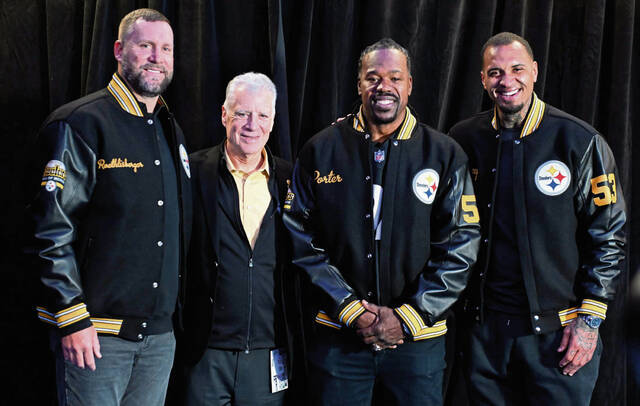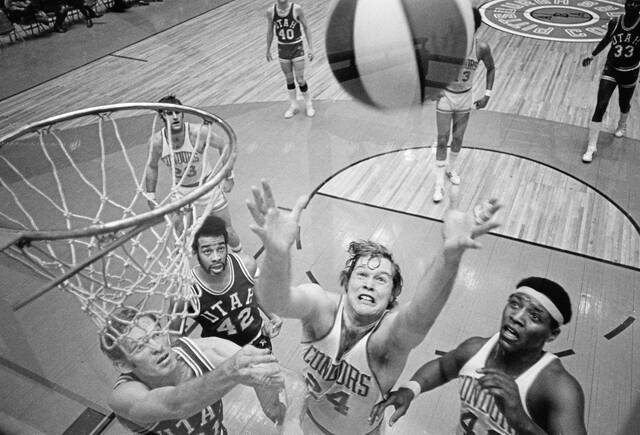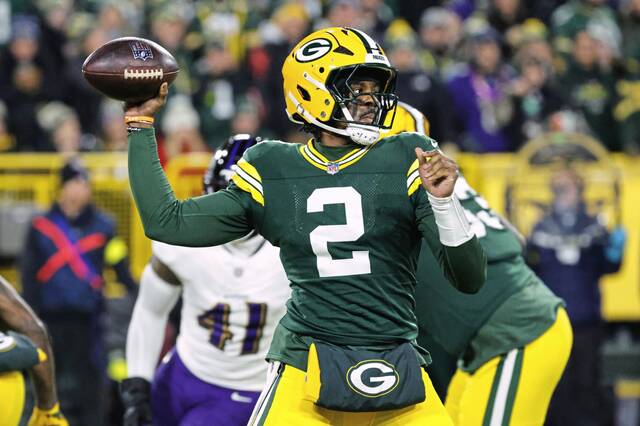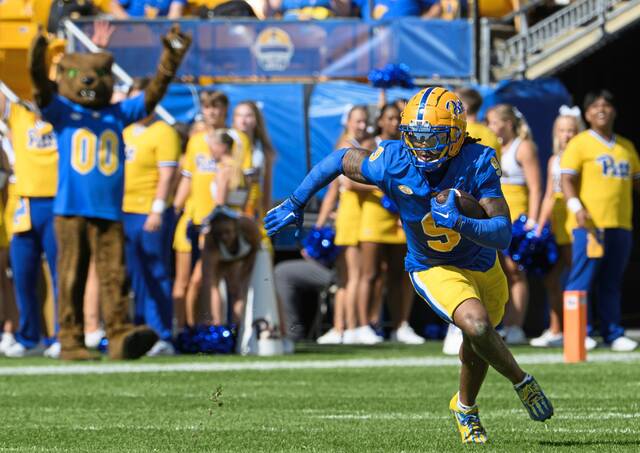As the World Cup progresses, the casual indifference by American sports fans to the United States’ performance comes in stark contrast to the rabid support shown by other countries’ supporters.
That reality is neither new nor surprising, given the professional sports dynamic that exists in the U.S., with professional soccer often the last dog to the bowl, so to speak, behind the football, baseball, basketball and hockey in terms of revenue, media coverage, TV viewership and so on.
The appreciation for soccer in the U.S. pales in comparison to the rest of the world, even as the red, white and blue prepares to face the Netherlands in a Round of 16 game at 10 a.m. Saturday in Qatar.
“You see the fans from other countries and the passion that’s involved, it’s life and death for a lot of countries. It’s almost like a religion,” said Matty Evans, associate head coach of Robert Morris’ men’s soccer team. “I think over here, there are so many different sports that it’s more of entertainment.”
Evans, a native of Bedford, England, played professionally in his home country and with the Pittsburgh Riverhounds before beginning his coaching career at Seton Hill, where he played in college.
With prior coaching stops at Appalachian State and Georgia Southern, he joined Robert Morris in early 2021.
Growing up around soccer, currently working within the sport and being a U.K. native, Evans undoubtedly had a vested interest in watching the group stage match between England and the U.S., which ended in a 0-0 draw last Friday.
That game has since come under the microscope within the greater context of the lack of nationwide support for World Cup soccer that exists in America.
Some critics pointed out that for a game on such a big stage, a 0-0 draw didn’t exactly pack much of a punch with respect to entertainment value as well as enticing more people to tune in for future games.
According to the experts, though, the game was a good example of three good reasons why the United States’ World Cup run can be exciting even for sports fans who aren’t exactly soccer aficionados.
1. Underdog appeal
For the U.S., slotted 16th in the latest FIFA world rankings, any close match against a team as powerful as No. 5 England or the eighth-ranked Netherlands — even if it’s low-scoring affair — represents a potentially dramatic moment.
“That point (for the U.S.) against England – one of the top-five countries in the world for the sport – it’s a great result,” Evans said. “You really have to look at it that way.”
Suffice to say, England is one of the world’s perennial powerhouses at the World Cup stage, despite only winning it just once, back in 1966.
While neither team scored a goal, the U.S. held firm against stiff opposition, earning a point and preserving a chance to advance to the Round of 16, which manifested via a 1-0 victory over Iran on Tuesday.
“For someone who’s educated in the game of soccer, who’s played, been around it or coached it, it was a pretty enthralling 0-0 draw,” said Scott Gibson, academy director for the Pittsburgh Riverhounds. “It was a great performance for the U.S., actually, against a very strong England team.”
2. Athletic marvels
Gibson, who, like Evans, hails from the U.K. (Saltburn, England), played collegiately at Duquesne and then the Riverhounds, for whom he now oversees the team’s youth academy.
For Gibson, a Pittsburgh resident since 2003, the game of soccer in the U.S. has grown before his eyes over the years.
To those less-than-casual fans who might not have the most acute understanding of the sport, with all its nuances, Gibson offered simple beginner advice: check out a game in person.
When it comes to speed, agility and especially endurance, soccer players can match up with any athlete in the world.
“When they go to the actual game themselves and they see the experience, the speed of the game, just how large the field is and how demanding it is for players, they certainly do appreciate it,” he said.
3. Making history
Despite hailing from such a large, athletically rich and financially robust nation, the U.S. men have advanced into the Round of 16 only five times since the inaugural World Cup was held in 1930, making the quarterfinals just once in 1994.
For a 32-year period from 1954-1986, in addition to most recently in 2018, the U.S. men failed to even qualify for the World Cup.
Thus, sadly for the U.S. men and its fans, not much of a pedigree exists.
But as Gibson sees it, here and now the stage is set for that ongoing process to get a bit of a nitro boost.
“If the U.S. were, let’s say, to go on a run and win this World Cup, I think it would be sensational. I think it would catch on,” Gibson said. “The U.S. itself have got a very young team. A lot of the guys are very young, so especially with the next World Cup (in 2026) being in the U.S. and Canada and Mexico – they’re splitting the home sites — there’s not a better time to get behind and root. You’d think a lot of these guys are going to be around in four years’ time.”
Sleeping giant
Adam Mitchell came over to the U.S. from his native Brighton, England, to play soccer at Notre Dame College in Ohio.
Mitchell, now an assistant coach for Duquesne men’s soccer, admitted that upon arriving, he assumed he’d have a clear edge over his American competitors.
While Mitchell’s playing days were chock-full of individual accolades, it didn’t take too long for him to be surprised in that regard.
Notably, by the time he graduated college in 2015, Mitchell detected a stockpile of young talent that, if properly developed and nurtured, could bode well for the U.S. on the international stage down the line.
While this generation of U.S. men has yet to distinguish itself at the World Cup, prospects could be looking up in the years to come.
“The talent’s there and it’s young — imagine when these guys are in their prime eight years from now,” Mitchell said. “… I think the American culture is like, ‘Oh, we’re not very good.’ But the truth is that the team is good. It’s just that it’s not France. The level Americans expect sometimes, that they’re going to be the best, (but soccer) is the one sport where they’re not yet. Give it another 10 years.”








